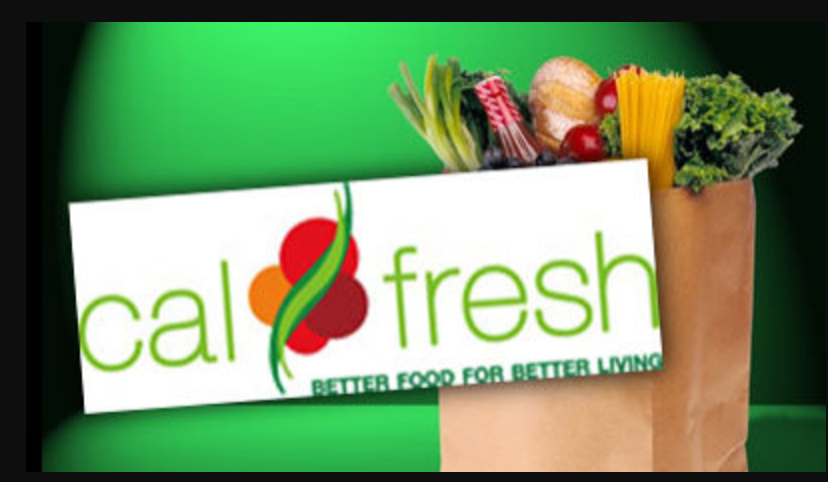
The San Francisco Human Services Agency’s (HSA) program and other community food resources play a major role in the homeless population’s quest for food justice. HSA has very specific criteria for those seeking food benefit assistance and the homeless are not exempt from county-specific requirements. The homeless population faces issues of food insecurity and economic pressures that prevent them from accessing healthy, nutritious and culturally appropriate foods — in the social justice realm, this collection of problems is known as “food injustice.” Many homeless people are often denied or reduced access to resources such as CalFresh that assist in meeting their basic food needs. Thus, let’s take a closer look at the barriers preventing the homeless population from accessing and maintain benefits such as CalFresh.
HSA provides thousands of homeless people with CalFresh food assistance benefits in California each month. There are specific criteria that must be met for individuals and families to be eligible to receive CalFresh benefits. Currently, those receiving SSI (Supplemental Security Income) are not eligible for CalFresh benefits. In addition, the current benefits issued to the homeless and low-income individuals do not reflect the current costs of living in California.
Colleen Rivecca, advocacy program director of St. Anthony’s, said that proposed federal cuts to the Supplemental Nutritional Assistance Program (SNAP) would increase hunger among low-income people.
“The U.S. House of Representatives has, in their FY 2018 budget resolution, called for $10 billion in cuts to SNAP over the next 10 years. Local charities and food banks would not be able to absorb cuts to SNAP – there would be a significant increase in hunger/food insecurity if benefit levels are reduced or if certain groups of people were prohibited from getting benefits,” she said. Even with the current low benefit amounts given to recipients, the government still plans on making additional cuts to the program.
St. Anthony’s is an organization that attempts to close the gap by providing over 2,400 meals in its dining room each day in San Francisco. This organization provides an array of other services as well such as medical care, drug/alcohol treatment, computer access, clothing and social services. Rivecca provided valuable insight to the plight of the homeless populations issues with food injustices. Many people who use services at St. Anthony’s are homeless and low-income individuals dealing with “high rent burdens, living in housing without access to cooking facilities, diabetes, disabling medical conditions, lack of consistent access to health care, and hunger/food insecurity,” she said.
When Street Sheet contacted staff at HSA, they suggested that individuals apply in person at the Department of Human Services, although it’s also possible to apply by phone, mail or online. In order to maintain contact with workers for eligibility purposes, HSA also recommended that beneficiaries use the phone services that are free under the state LifeLine program. People enrolled in CalFresh automatically qualify. This will allow beneficiaries to be notified of appointments at Human Services and any requested information that should be submitted to continue receiving CalFresh. Maintaining reliable and effective communication sources could be a potential barrier for the homeless population, especially those that don’t have access to a phone at a homeless shelter.
The homeless population faces numerous barriers in access and maintaining food resources. Rivecca identified some of these barriers that the homeless population faces, which include “lack of adequate income to purchase food and lack of ability to prepare food at home (no access to kitchens if you live on the street or in shelter).” It’s apparent that without adequate housing, it’s difficult for homeless people to eat healthier foods. Consequently, there are implications to the population’s being at risk for other health problems.
“Free meal programs like ours do not end poverty or hunger, but they do help people who are experiencing hunger make it to the next day with some dignity and sustenance,” Rivecca said. “When you’re homeless, it can be a challenge just to get enough calories to make it through the day, and it’s an even greater challenge to access nutritious food that meets specific dietary needs that arise due to medical conditions or religious/ethical choices. Food insecurity is tied to housing insecurity, lack of health care and lack of adequate income. Housing, health care and an adequate income are essential supports that help homeless people meet their dietary needs.”
There are several reasons for denial of an individual’s application or termination of benefits. These include missing scheduled appointments, receiving additional benefits and unreported changes such as moving or receiving Social Security Disability Income or SSI benefits. “San Francisco County is currently operating under this waiver, until September 2018,” Rivecca added, referring to the waiver given to able-bodied adults without dependents. CalFresh could start enforcing a seldom-used eligibility requirement, potentially tangling clients in more red tape.
“Once the waiver ends, recipients will lose their benefits after three months, unless they are able to prove they are working at least 20 hours per week,” Rivecca said. “Should this policy be enacted, it will be imperative to ensure that all homeless recipients meet with their caseworkers to see if there are any exemptions they can apply for that will keep them from losing their benefits. (It is possible that being homeless, in and of itself, may be an exemption.)” In-depth work on educating those that may be impacted by these changes will be need to be conducted by those services providers assisting this population.
Ultimately, it’s a human right to have access to nutritional food that enables individuals to maintain healthy and functional lives. By denying and reducing the homeless population’s access to such resources as CalFresh violates these rights. Rivecca suggests “having eligibility workers on site at places where homeless people already are – every shelter, resource center, navigation center, etc., helps.” Furthermore, food justice should be actualized for those experiencing homelessness in San Francisco and across the globe.

